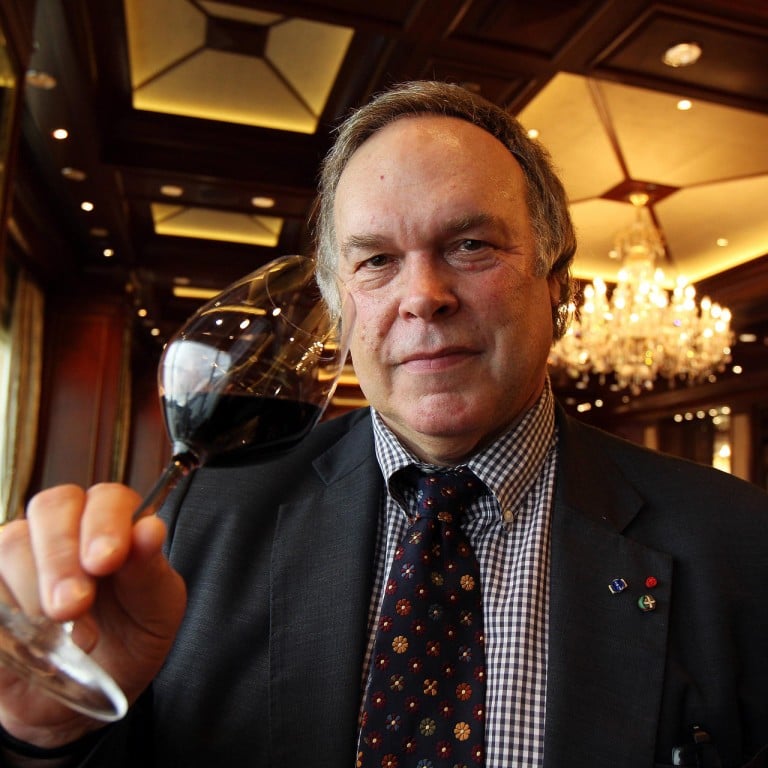
Is there life after Robert Parker in the world of wine criticism?
Robert Parker is finishing up the sold-out Asian leg of his Grand World Tour before heading off to the US and Bordeaux later in the year. Tickets came in at over US$1,000 per spot, but in return guests have been treated to an array of top-drawer Bordeaux and 100-point Parker wines.
The dinners and tastings come just over a year after the announcement that Parker, the world's most famous wine critic, has sold to a group of Singaporean investors for US$15 million. He has now stepped down as editor-in-chief of the publication that he began in 1978 in favour of Lisa Perrotti Brown, a master of wine based in Singapore.
There has been plenty of speculation that this tour is a swan song for Parker, who is stepping back from the intense output of wine reviews that he has maintained for well over 30 years. The new owners probably want to maximise his presence while they still can, and to cement the name of their new publication in Asia.
The subject of what happens post-Parker has already filled hundreds of wine columns and blog posts during the past year. Most are wondering who can fill the gap left by a man whose scores have moved markets, and bestowed recognition on entire wine regions.
The ferocity of this debate isn't really about the consumer. We all know that an interested wine drinker will be able to find their way to their next wine. Whether there will be another Parker to follow on from His Royal Bobness (as one potential replacement, Neal Martin, used to refer to his now boss) is beside the point for many drinkers.
Depending on their particular point of interest, they can look to Allen Meadows for Burgundy, to Jon Bonné or Antonio Galloni for California, to Fongyee Walker or Li Demei for China, to their local paper's wine columnist or their favourite blogger, or to excellent all-round critics such as Jancis Robinson, Eric Asimov, Elin McCoy, and dozens of others.
Parker has spent the past few years ensuring that respected palates are replacing him at to allow it to follow the route of or where trust in the publication's name takes precedence over any one critic.
With all of this, I feel pretty confident that consumers are going to be fine. We're not going to go thirsty because Parker isn't telling us which of the latest range of Smith Haut Lafitte wines are worth 100 points.
If we're going to worry about anyone, let's spare a thought for the wine trade. As wine merchant Lars Venborg of Bibendum Europe points out, "The real interest post-Parker is how the trade is going to cope, and there is no clear answer to that right now. He has exerted a powerful influence on price points and sales support for three decades, and his stepping back will certainly have an impact.
"The trade has been using and abusing his scores to move stock and create added value for so long that they will want someone to fill the gap. It will be interesting to see who they decide to anoint - and then see if consumers will agree."
Alongside the trade is another group of people who will be loathe to see Parker retire - winemakers themselves.
It's easy to think immediately of Bordeaux, the region that has most famously benefited from Parker's influence, but there is also Australia, the Rhone Valley, the western coast of the US and, to a lesser extent, Burgundy.
Francois Perrin of Chateau Beaucastel in the Rhone happily acknowledges that Parker helped the world discover the Rhone. "It is in no small part due to him that this has become the third great French wine region for the US market alongside Bordeaux and Burgundy."
In Bordeaux, Véronique Dausse at Phelan Ségur sees wine criticism becoming more localised and consumer-led, and that "the age of the guru is over". But Dausse warns that judging certain wines needs expertise. "Take Bordeaux, which is sold by tasting young wines before they are bottled; it's a system that needs specialists who understand terroir, appellations, and the potential evolution of specific wines," she says.
Charles Smith, a self-taught wine maker out of the Walla Walla Valley in Washington State and a Parker favourite (even with a wide range of styles, going from full-on 16 per cent shiraz to delicate 11 per cent rieslings) is dismissive of the idea of a "Post Parker watershed" where big critics cease to matter.
"Why shouldn't become like and take on a life of its own beyond Parker? And if it doesn't, there will be others to replace it. As with film critics and music critics, you find the one you like, and discount the rest.
"But critics aren't going anywhere. The difference with wine is that buying a ticket to see a movie that cost US$300 million to make or one that cost US$3 million is the same," says Smith.
"But the prices we are asked to shell out for wine varies hugely depending on any number of factors, so there is a clear role for credible expert opinion. All we need are enquiring minds willing to put their palates to good use." Jane Anson is a wine writer based in France

